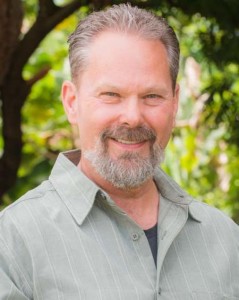Tim Mullins, MA, LCPC has joined the PQ Clinical Team and brings over ten years of experience in the outdoor therapeutic industry. He offers a wealth of personal and professional experience and has the unique ability to balance clinical insight with his sense of humor, a perfect match for working with young people.
Becoming a therapist has been the natural outcome of a lifelong interest in the inner workings of the mind and central to Tim’s professional interest is his recovery life. With 19 years of sobriety, Tim has had a remarkable journey from a seemingly hopeless frame of mind to a life directed towards health, study, and service. Dr. Lorraine Freedle, Clinical Director, comments, “Tim is rock solid. He blends years of experience in wilderness therapy and addictions recovery with a holistic and transpersonal perspective that deepens the work in a unique and powerful way.”
Working at Pacific Quest aligns with Tim’s integral values. As a yoga practitioner and instructor, he came to understand how people can become attuned to their inner landscape through working in a natural environment. As an organic gardener, connecting with the land and the environment is a spiritual endeavor that feeds the body and the mind. Tim believes that it is a disconnection from the natural world that is at the core of many modern problems. “Getting back to the garden means reconnecting to the source of our physical and psychological sustenance,” adds Tim.
Tim is a licensed clinical professional counselor and considers himself an integrative practitioner. He has a Master of Arts in Counseling Psychology from Prescott College, and is currently pursuing his doctoral degree in psychology at California Southern University, with a focus on the integration of science and the perennial philosophies into an interdisciplinary psychology.
Tim’s interests are wide ranging and eclectic. He is an avid chess player and an Argentine Tango dancer. Tim enjoys hiking, biking, backpacking, and scuba diving. He also designs and (occasionally) builds residential and commercial structures with a particular interest in the psychology of constructed spaces that are attuned to their respective environments.
